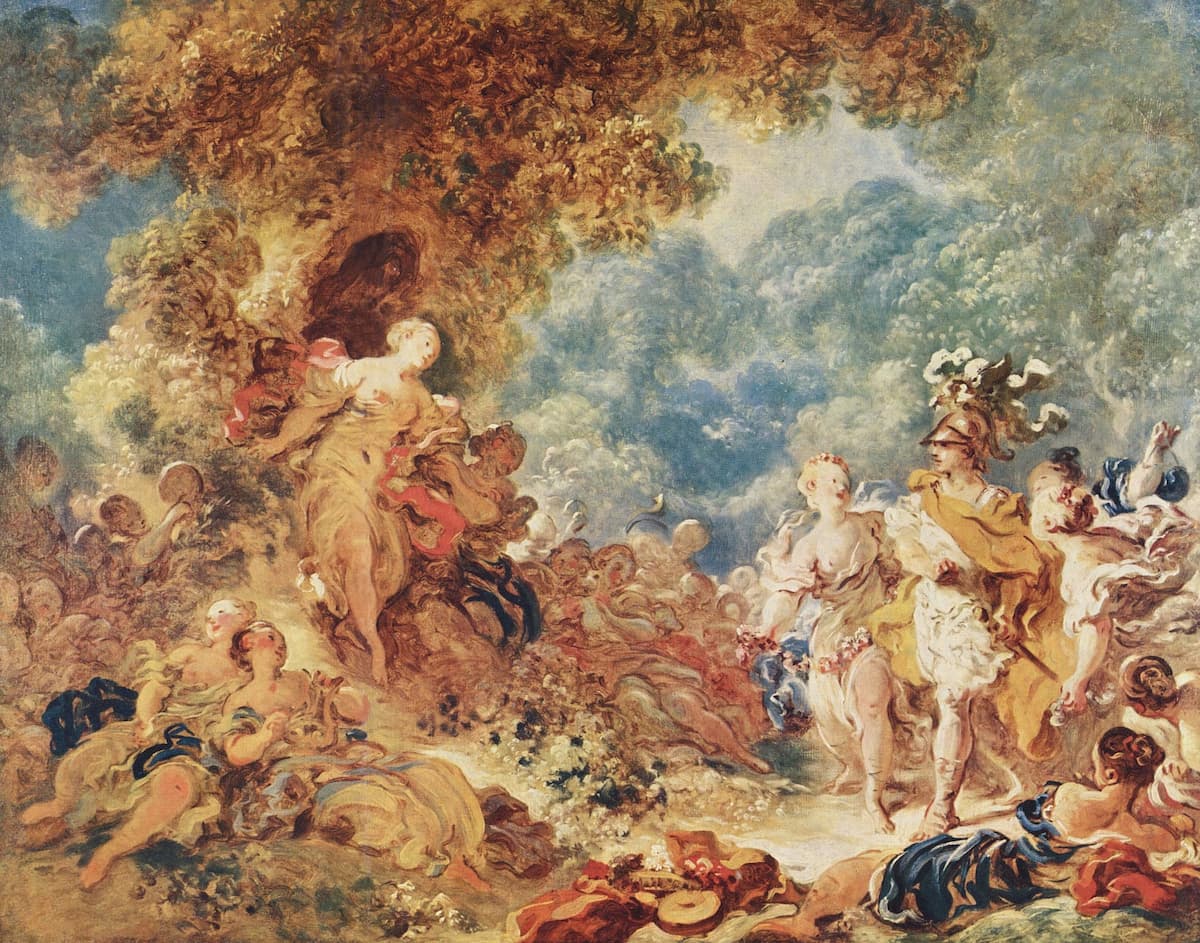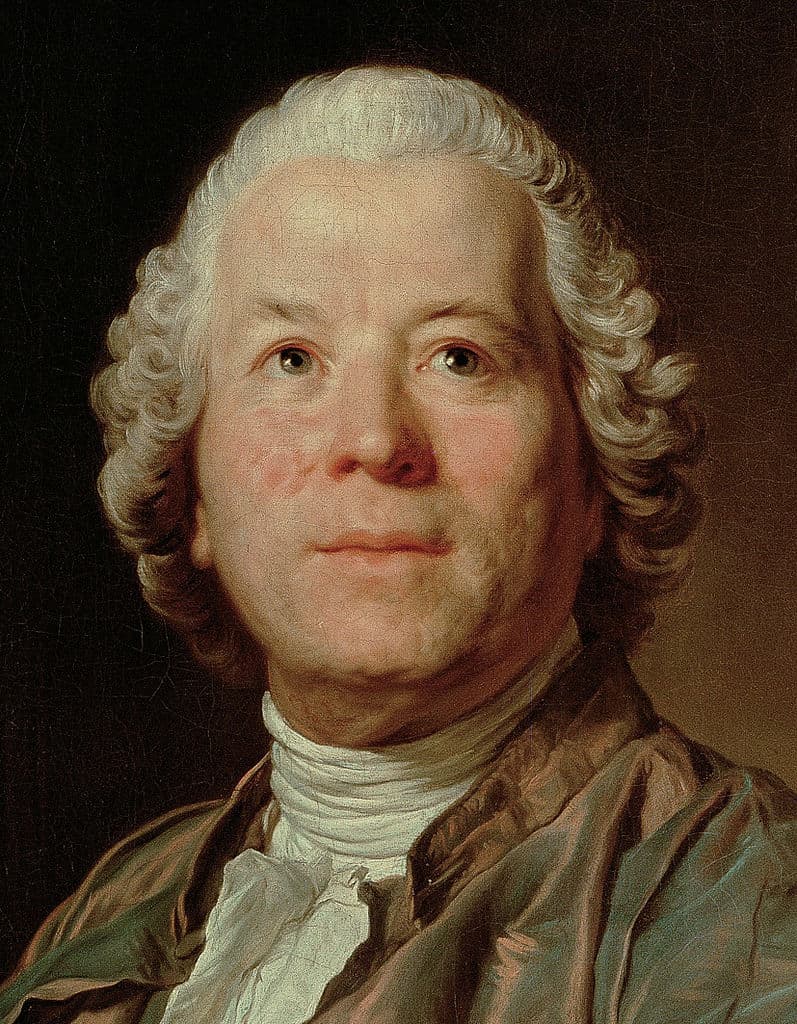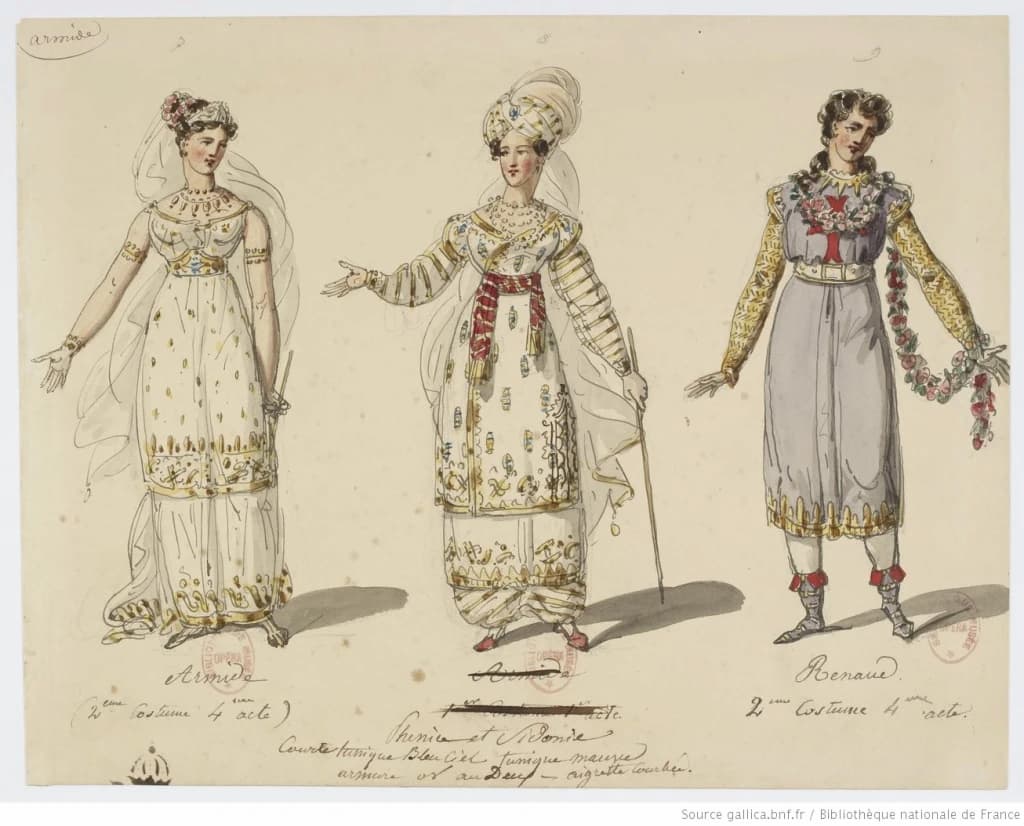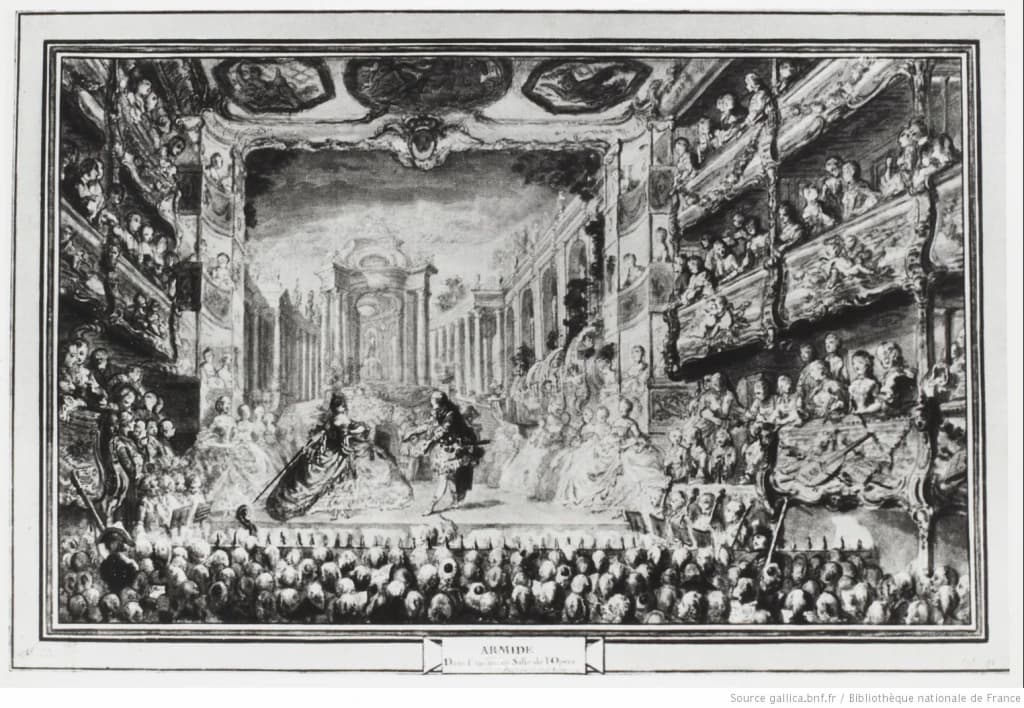In 1575, Torquato Tasso wrote his epic poem Gerusalemme liberate (Jerusalem Delivered). Set during the first crusade, the sorceress Armida ensnares the Christian knight Rinaldo and holds him captive on an island. When she raises her dagger to kill him, she falls in love with him, and casts a spell to make him love her in return. Unable to come to terms with the idea that Rinaldo’s love is merely the work of enchantment, she calls upon the goddess of hate to restore her original revulsion.
Christoph Willibald Gluck: Armide, “Overture” (City of London Sinfonia; Richard Hickox, cond.)

Jean-Honoré Fragonard: Rinaldo in the gardens of Armida
However, Armida cannot escape from her feelings of love, and the goddess condemns Armida to eternal love. In the meantime, his fellow soldiers free Rinaldo, and Armida’s spell is broken. Armida is left enraged, despairing, and hopeless. This powerful story has been set to music by roughly 50 composers, including Christoph Willibald Gluck. Armide was Gluck’s fifth production for the Parisian stage, and it premiered on 23 September 1777 by the Académie Royale de Musique in the second Salle du Palais-Royal in Paris.
Christoph Willibald Gluck: Armide, “Plus j’observe ces lieux”
Opera Wars
Gluck considered Armide his favourite work, and it was part of a contract for six stage works signed with the Paris Opéra. With these commissions, Gluck set out to completely reform opera, and in so doing, provided the spark for a full-out culture war. Gluck believed that the principle Italian operatic genres had become unnatural, featuring empty stereotype characters and music devoted to superficial effects.
Christoph Willibald Gluck: Armide, “Armide est encore plus aimable” (Sally Burgess, mezzo-soprano; Maria Slorach, soprano; Raimund Herincx, bass-baritone; Richard Hickox Singers; City of London Sinfonia; Richard Hickox, cond.)

Christoph Willibald Gluck
Gluck wanted opera to return to its roots by focusing on human drama and passion, and by giving equal importance to words and music. However, Gluck’s operas on dark and dramatic Greek themes, lacking ballets and highly ornamented light melodies, did not sit well with aficionados of Italian opera. Aristocratic intrigues set up a rival composer, and the public was caught up in a war of pamphlets, lampoons, and newspaper articles.
Christoph Willibald Gluck: Armide, “Espirits de haine et de rage” (Felicity Palmer, alto; Raimund Herincx, bass-baritone; City of London Sinfonia; Richard Hickox, cond.)
French Traditions

Costume designs of Christoph Willibald Gluck’s Armide
For his musical setting of Armide, Gluck relied on the same libretto Philippe Quinault had written for Lully in 1686. Since Lully and Quinault were celebrated as the very founders of serious opera, recomposing Armide was certainly a gamble. A similar attempt in 1765 had ended in disaster, and audiences demanded that it be replaced by Lully’s original.
Christoph Willibald Gluck: Armide, “Ah! Quelle erreur! Quelle folie” (Richard Hickox Singers; City of London Sinfonia; Richard Hickox, cond.)
A scholar wrote, “by utilising Armide Gluck challenged the long-standing and apparently inviolable ideals of French practice, and in the process, he revealed these values capable of renewal through modern compositional sensitivities.” Critical response and polemic resulted in one of those grand imbroglios common to French intellectual life. Gluck struck a nerve in French sensitivities, and whereas Armide was not one of his more popular works, it remained a critical touchstone in the French operatic tradition.
Christoph Willibald Gluck: Armide, “Enfin, il est en ma puissance” (Felicity Palmer, alto; City of London Sinfonia; Richard Hickox, cond.)
Sensuous Music

Title page of the libretto, Christoph Willibald Gluck’s Armide
Armide is the only one of Gluck’s late operas to end tragically, reaching its conclusion as a logical outcome of the events of the drama. For the most part foregoing spectacular effects and ballets, Gluck brought the opera alive by writing inspired music at any level. As the composer explained, “Armide must produce a voluptuous sensation,” and it surely contains some of the most beautiful and sensuous music that he ever wrote.
Christoph Willibald Gluck: Armide, “Amour, sors pour j’amais” (Linda Finnie, contralto; Richard Hickox Singers; City of London Sinfonia; Richard Hickox, cond.)
What makes Armide special is the fact that it only contains very few arias or set numbers. Instead, in this action-packed opera, Gluck opted for short airs, arioso and recitative within a fluid and continuous structure. The characterisation of Armide, for example, is fully established in recitative and arioso. As such, as Jeremy Hayes writes, “She dominates the opera, a combination of sorceress and seductress, one of Gluck’s great heroines and possible the most rounded and fascinating female character.”
Christoph Willibald Gluck: Armide, “D’ou vient que vous vous detournez” (Stephen Roberts, baritone; Maria Slorach, soprano; City of London Sinfonia; Richard Hickox, cond.)
Reception

The premiere of Christoph Willibald Gluck’s Armide
The 18th century found no satisfying way of dealing with Armide, and it was not frequently performed. We know that Berlioz admired the work, and that Meyerbeer conducted it in Berlin in 1843. In the same year, Wagner conducted Armide in Dresden with Wilhelmine Schröder-Devrient in the title role. Toscanini gave the opera in La Scala and at the MET in New York but performances in recent times have been few and far between. As a commentator wrote, “today, Armide is seldom performed, and Orfeo (wrongly) and Iphigénie en Tauride (rightly) are more esteemed.
For more of the best in classical music, sign up for our E-Newsletter
